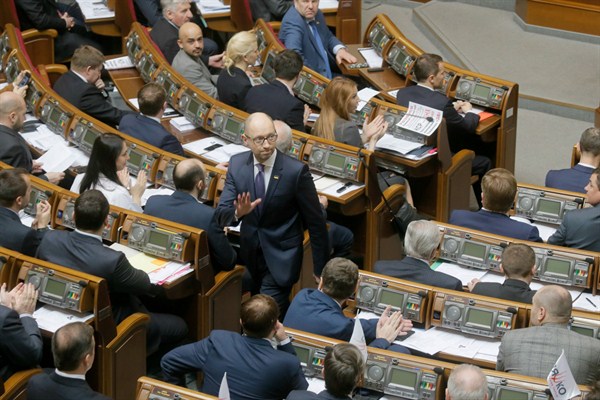Earlier this month, in a nonbinding referendum, Dutch voters firmly rejected a treaty that would establish closer ties between the European Union and Ukraine. The Netherlands currently holds the EU’s rotating presidency, and for Prime Minister Mark Rutte, a supporter of the treaty, the vote was a clear rebuke. The Netherlands, like many other countries across Europe, is in the midst of a populist backlash against European integration in general. Referendum voters also expressed discontent with migration and economic regulation, echoing sentiments held everywhere from France to Hungary.
But the referendum also reflected discontent with Ukraine itself. More than two years after protesters first took to the streets of Kiev to oust the corrupt and unpopular President Viktor Yanukovych, a client of Russian President Vladimir Putin, Ukraine remains mired in corruption at all levels. The country’s recent political upheaval points to the need for a series of reforms that, while not especially likely, will be crucial if European integration is ever to succeed.
Two stories this month highlighted the deep inadequacy of Ukraine’s current leadership. The first was revealed in the Panama Papers, a coordinated leak to international media outlets of millions of confidential documents from a Panama City law firm, capturing the scale of money laundering among the global elite. Among the many leaders embarrassed was Ukrainian President Petro Poroshenko, who, according to The Guardian, had been busy stashing his wealth in a secret offshore account in the British Virgin Islands at the height of the violence in eastern Ukraine in mid-2014.

